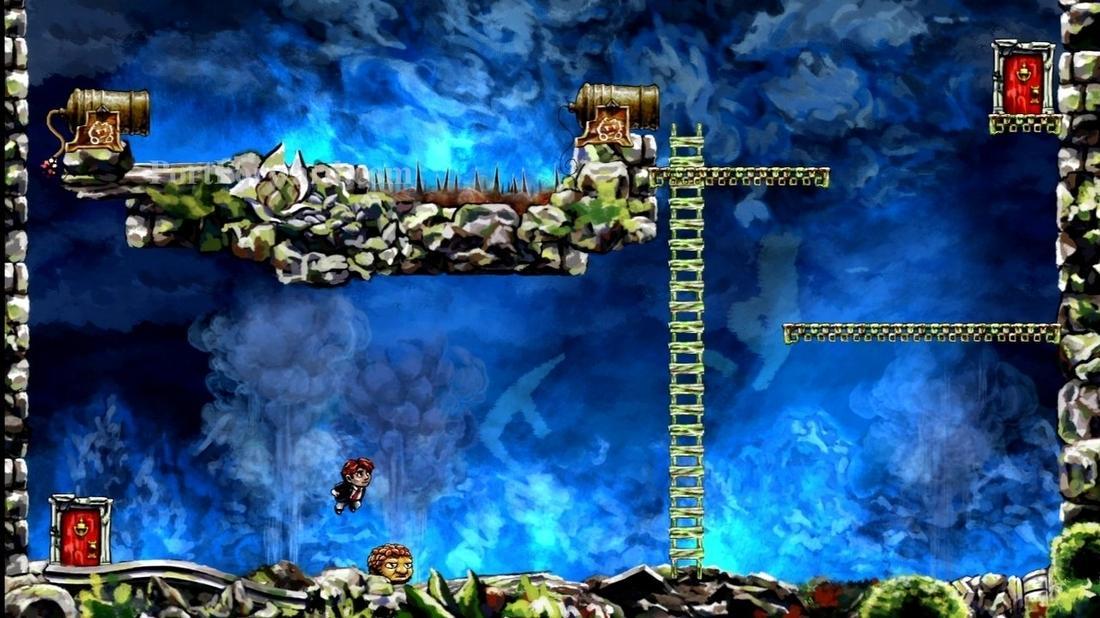Oftentimes, the monotonous day-to-day passing of time in our reality can serve as a source of frustration and anxiety, filled with constant reminders of the past and worries about the future. Our experience of the world around us is restricted by a linear experience of time, however, video games can provide an outlet by which we are able to explore temporality in ways that are incompatible with our own reality.
In Patrick Jagoda’s essay, “Digital Games and Science Fiction,” he asserts that games are interactive stories which, “…are frequently nonlinear, multilinear, enactive, or emergent. As Jenkins again observes, ‘Game designers don’t simply tell stories; they design worlds and sculpt spaces’” (Jagoda 141). While digital games are usually shaped around a linear narrative, similar to how novels are constructed, games provide the user with choices, engagement, and the ability to shape their own experience, thereby expanding the user’s experience of time within the game itself.
One particular example of this time-bending in digital games appears in Jonathan Blow’s Braid (2008), which is characterized by, “…mechanics that allow the player to solve puzzles by reversing time, slowing down or speeding up temporal flow, synchronizing or suspending different time streams, calling on a shadow self that exists as a slight delay…” (Jagoda 141). This direct alteration of the rules of time and space causes the user to question the possibilities of time manipulation, and directly challenges our own experience of reality.

While Braid serves as a very direct example of time manipulation, most video games do not even have to directly address the issues of space and time in their mechanics to still allow users to engage in a new temporality. Even a classic game such as Super Mario Bros. enables users to interact with time in a new manner, as the player is able to “die” on multiple occasions and relive the same level, making different choices and actions based on their previous mistakes. In this manner, players are able to consider the consequences of past actions and “re-do” the same scenario over again in a fully new present. As much as any individual would like to use this same mechanism to right their own past mistakes in reality, our linear experience of time precludes it.
Video games are not the only form of media by which we can expand our explorations of time, since novels and art provide us access to moments in histories, both imagined and realistic, that we cannot travel to on our own. The interactivity of video games, however, engages users in a manner beyond what can be imagined in any other art form. Being able to relive the past and make new and different choices each time is a characteristic unique to games, whereas re-reading a novel may not present any new options or timelines.
While video games provide us new and exciting opportunities for us to engage with temporality, the question remains whether they can truly escape the linearity of our reality. While most games have a defined linear “ending,” open-world games and the ability to make infinite choices in a game significantly challenge this notion, with possibility for seemingly never-ending gameplay. Therefore, do you think that video games serve as a way for us to transcend the traditional timeline? Or must our own experience of linearity define the art we make?
Bibliography:
Jagoda, Patrick. “Digital Games and Science Fiction.” Cambridge University Press. 05 February 2015.
Images:
“Braid Walkthrough World 1,” Port Forward. https://portforward.com/games/walkthroughs/Braid/World-1.htm (Accessed October 7).
“Braid (video game),” Wikipedia. https://en.wikipedia.org/wiki/Braid_(video_game) (Accessed October 7).


I like your final question regarding whether our linear perception of time influences the art and media that we create. I think it certainly influences the idea of linear gameplay with chronological narrative progression, but also can do the exact opposite and make us want to explore a non-linear perspective or gameplay. I think the concept of time is something that is either in the forefront of people’s minds (or not, as I like to tell myself) and I think games, amongst many other forms of media, give us the ability to escape this linearity that is our lives and explore the possibilities. What if I did this instead of that? What would have happened if I performed this action before everything else? What if I could go back in time and fix my mistakes? These are some questions that are prominent in a lot of games (e.g. the Butterfly Effect, which is used in games like Fallout, Until Dawn, and Life is Strange) that use time as a mechanic, which I think helps aid in the creativity in video games because the exploration and escape of linearity opens a world of possibilities that can bend time to the player’s and creator’s wills.
To throw in another example into the ring, the movie Arrival is one of, if not my favorite, example of a non-linear narrative. This non-linearity can make it more difficult to understand the story, which can pull the viewer in more in the attempt to understand the non-linear structure of the story. You mentioned how video games take this further because you can interact in the game. I’m also interested in how we experience non-linear narratives, we can understand it in theory but never experience it. I guess kind of like how a 2-dimensional being can imagine a z-axis but never see it. Does this curiosity serve any other purpose other than wondering at the unknown?
I think the questions you raise about never ending gameplay implicitly calls attention to what happens when player stop engaging with a game that does not have a definite end. To me, there is always something slightly unsettling about returning to a game after months and seeing everything just as I left it. In the context of our linear experience of time, what does it mean for a player to be able to access a previously abandoned save state? Is this access to the past a seamless, somewhat instantaneous rejoining of the past play state to the present?
You pose a really interesting perspective to look at game‘s magic that is inaccessible in real life scenario. Just like what you said, transcending timelines is not unique to video games– novels and art also provide us moments in history. In the meantime, besides altering people’s sense of time, video games, as well as other media forms, have other super power that turns our imagination into “reality”, such as giving avatars the ability to fly, etc. My questions are, why is time manipulation so important? Compared with games’ other super power, is there anything unique about time manipulation in terms of challenging our own experience of reality?